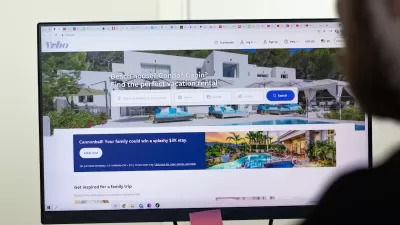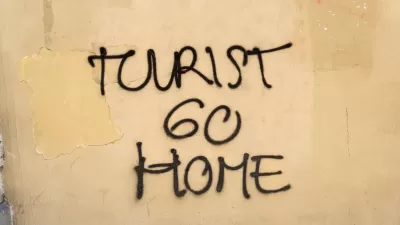If properly regulated and taxed, the STR sector can generate millions in tax revenue.

A report from civic engagement software company Granicus outlines how cities can increase their revenue from the short-term rental sector by tightening regulations and cracking down on unlicensed rental properties.
As Kaitlyn Levinson explains in Route Fifty, the report recommends that cities create more robust systems for monitoring and collecting taxes on these properties. “Increasing taxes on short-term rentals, said Jorge González-Hermoso, a research associate at the Urban Institute, could also help ensure that the cities get paid for short-term renters’ use of public services like roads and utilities.”
Other lodgings, such as hotels, generally pay much higher taxes than residential properties — which, in most states, include short-term rentals. In Colorado, hotels pay a 27.9 percent tax while residential properties are subject to a 6.765 percent tax. A failed bill that would have raised the tax on STRs could have generated as much as $293.3 million in revenue in 2026, according to a fiscal analysis.
As Levinson explains, STR revenue can also offset the negative impacts of the industry. In Nashville, STR tax revenue goes toward the city’s affordable housing fund, with over $15 million generated since 2015.
FULL STORY: How tougher regulations on short-term rentals can boost revenue for state, local govs

Study: Maui’s Plan to Convert Vacation Rentals to Long-Term Housing Could Cause Nearly $1 Billion Economic Loss
The plan would reduce visitor accommodation by 25,% resulting in 1,900 jobs lost.

North Texas Transit Leaders Tout Benefits of TOD for Growing Region
At a summit focused on transit-oriented development, policymakers discussed how North Texas’ expanded light rail system can serve as a tool for economic growth.

Why Should We Subsidize Public Transportation?
Many public transit agencies face financial stress due to rising costs, declining fare revenue, and declining subsidies. Transit advocates must provide a strong business case for increasing public transit funding.

How to Make US Trains Faster
Changes to boarding platforms and a switch to electric trains could improve U.S. passenger rail service without the added cost of high-speed rail.

Columbia’s Revitalized ‘Loop’ Is a Hub for Local Entrepreneurs
A focus on small businesses is helping a commercial corridor in Columbia, Missouri thrive.

Invasive Insect Threatens Minnesota’s Ash Forests
The Emerald Ash Borer is a rapidly spreading invasive pest threatening Minnesota’s ash trees, and homeowners are encouraged to plant diverse replacement species, avoid moving ash firewood, and monitor for signs of infestation.
Urban Design for Planners 1: Software Tools
This six-course series explores essential urban design concepts using open source software and equips planners with the tools they need to participate fully in the urban design process.
Planning for Universal Design
Learn the tools for implementing Universal Design in planning regulations.
Ascent Environmental
Borough of Carlisle
Institute for Housing and Urban Development Studies (IHS)
City of Grandview
Harvard GSD Executive Education
Toledo-Lucas County Plan Commissions
Salt Lake City
NYU Wagner Graduate School of Public Service




























